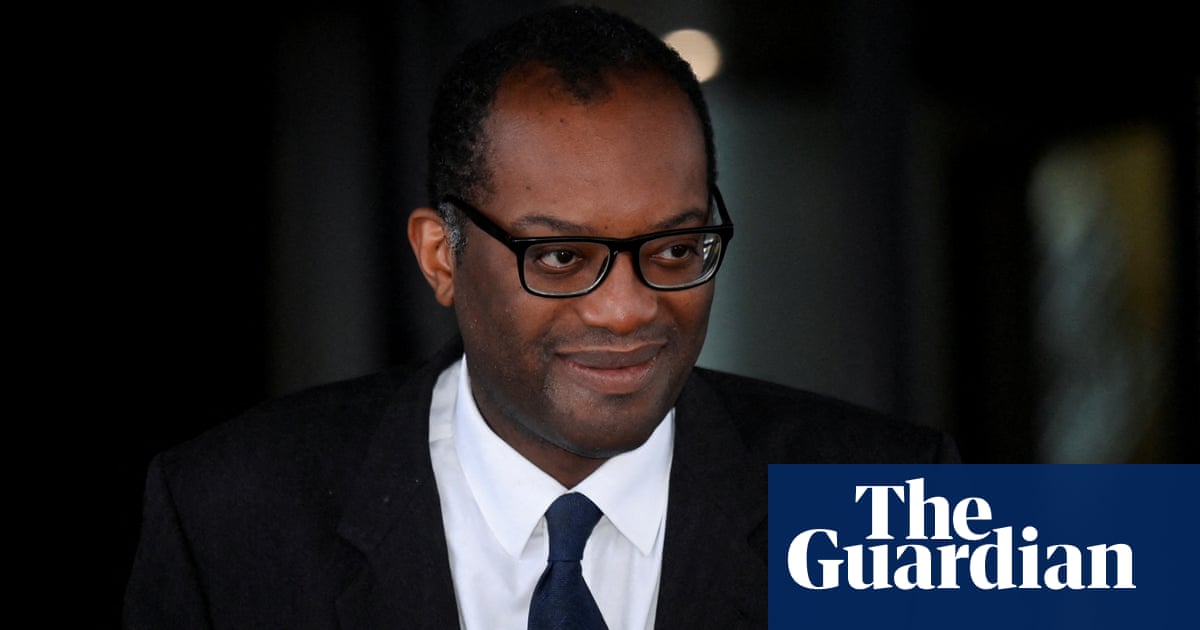
Kwasi Kwarteng has been handed independent forecasts on the state of the UK finances that are expected to show a hole of more than £60bn left by his sweeping tax cuts and a sharply slowing growth outlook.
At the end of a turbulent week for Liz Truss’s government, the chancellor was on Friday handed the initial predictions for the economy and public finances by the Office for Budget Responsibility (OBR) which are likely to paint a gloomy picture.
Sir Charlie Bean, a ex-member of the independent watchdog and a former Bank of England deputy governor, said the document would probably show a large shortfall for the exchequer.
“It will be in the order of £60bn to £70bn relative to its previous forecasts,” he said, adding that Kwarteng would face three options: further U-turns on his tax-cutting plans, deep cuts to public spending, or risking the ire of already rattled financial markets by substantially adding to the national debt.
“What he’ll be confronted with, and I don’t think to be honest most observers and MPs have really woken up to this yet, is the extent to which the public finances has deteriorated since the spring,” Bean said.
“It will be interesting to see what the chancellor comes up with, what rabbits he can pull out of the hat. They could U-turn on the tax cuts they announced a fortnight ago, but that of course I’d say would be politically terminal for the Truss government.”
The Treasury was on Friday closely guarding the details of the OBR forecast, despite pressure from rebellious backbench Conservative MPs demanding an early release of the estimates for economic growth and the public finances.
After the Treasury watchdog was sidelined by the chancellor for his mini-budget – among the several moves credited with spooking financial markets – the forecasts are thought to take into account the £43bn of unfunded tax promises announced by Kwarteng late last month.
The chancellor is understood to be working on plans to cover some of the shortfall in the public finances, due to be announced in a fiscal statement alongside the release of the OBR forecasts. Although pencilled in for 23 November, the chancellor is expected to announce to parliament next week that the event will be pulled forward, to before the end of October.
After receiving the initial forecasts on Friday, Kwarteng will update the OBR on his plans over the coming weeks. The watchdog will then produce a final forecast taking them into account to be published alongside the fiscal statement.
In an effort to close the gap, analysts at Deutsche Bank said they expected Kwarteng to use spending cuts worth between £25bn and £30bn over the next three financial years. However, such a move would be politically sensitive after a decade of austerity and growing demands on public services.
It said this would also still leave the government’s budget deficit – the shortfall between public spending and revenue – close to £185bn this year, compared with a March estimate made by the OBR for a £99bn shortfall. It said the deficit could fall to £155bn next year, but would still be more than £100bn above previous forecasts.
In the spring, the OBR estimated the government would have headroom of about £30bn within a target to get the UK’s national debt falling as a percentage of GDP. However, Bean said dramatically higher levels of inflation had pushed up government borrowing costs since then and led to a material slowdown in the economy.
The former OBR member, who vetted the tax and spending plans of three consecutive chancellors before stepping down in December last year, said this meant £30bn of headroom was probably now at least a £30bn shortfall. He said Kwarteng’s tax cuts could be added to this figure for the overall size of the hole in the UK’s finances.
Kwarteng has argued cutting taxes could help to drive economic growth, which could in turn benefit the public finances, and has set a growth target of 2.5% a year.
However, Bean said this was a “fairytale” that the OBR would also disagree with. It could though publish scenarios showing how faster growth rates could benefit the government finances.
It comes as the Bank of England awaits details of the chancellor’s mini-budget before setting interest rates early next month. Dave Ramsden, one of the Bank’s four deputy governors, said the mini-budget had prompted a “material” economic impact that it would be forced to take into account when setting borrowing costs.
Suggesting that the Bank would be forced to take tougher action to control inflation, he said there had been four successive “shocks” for the British economy: the mini-budget, the turbulence in financial markets seen in its wake, high energy costs, and shortages of workers.
“The picture you get is of successive upwards revisions to inflation and successive downwards revisions to growth, with the energy price shock the principal driver of both,” he said.












